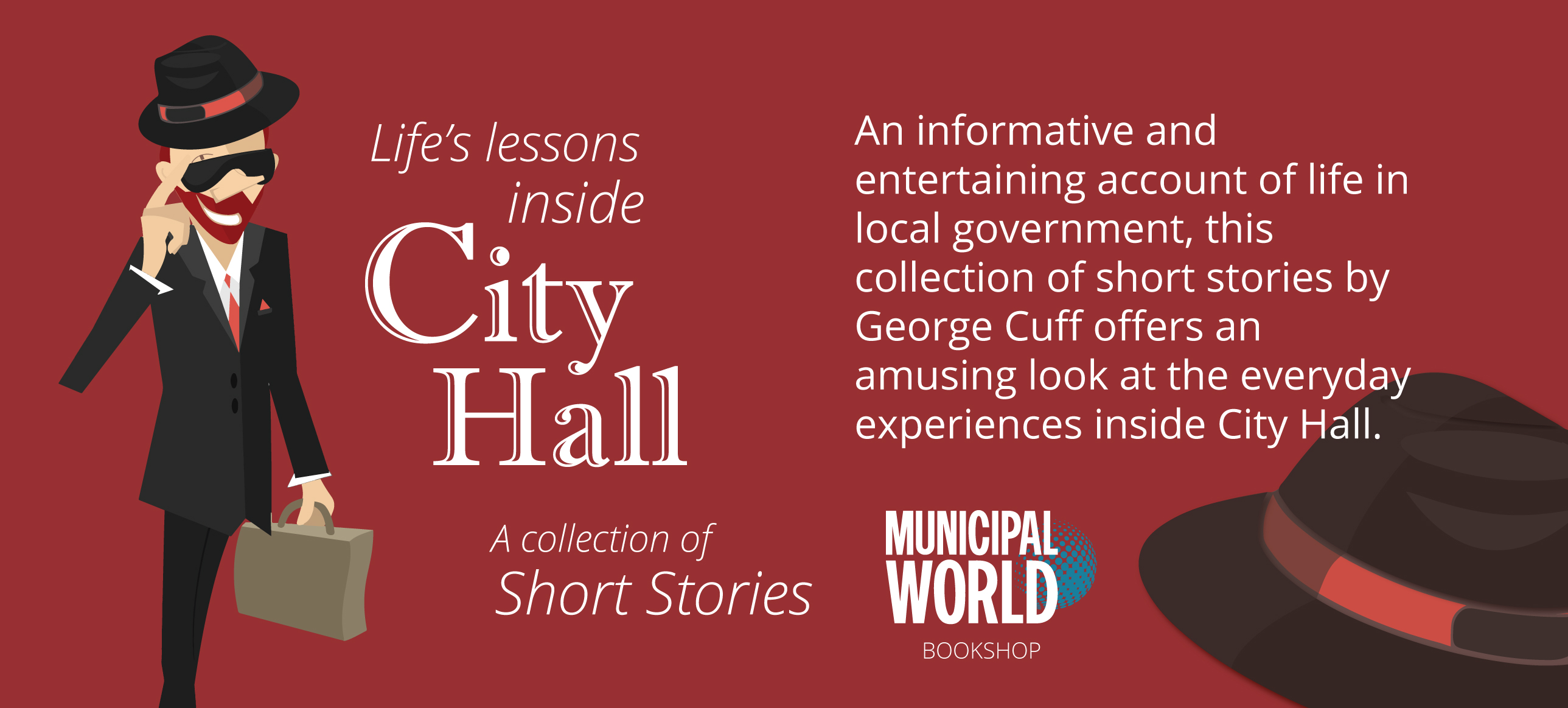Six life motivators for municipal leaders

The types of people who work for municipal government and why they are drawn to it
One of the major sources of conflict in all organizations – including municipalities – is the existence of opposing motivations. More specifically, the “whys” of our actions that either propel us into action or cause us to stall and procrastinate.
It is also a major factor that causes turnover in any organization – the round pegs in square holes effect.
German psychologist Eduard Spranger (born in 1882) spent a good deal of his life trying to figure out what motivates people, what shapes their decisions, and what gives them purpose in their lives. His book titled “Types of Men” (first published in 1914) led him to conclude that there are six basic value attitudes – or life motivators – that caused people to act.
Based on these observations, the following is a breakdown of the six types of thinkers that can be found in municipal government, and an explanation of where workplace conflict can occur.
1. Theoretical Thinkers
Theoretical thinkers spend much of their time on the discovery of truth, and they do this by spending hours reading manuals and pursuing knowledge, truths, and untruths.
For them, knowing how things work is paramount. They see this as the prudent thing to do before swinging into action. They help municipalities manage risk, improve the quality of services, and reduce costs without compromising value.
They are usually the people in the office the rest of us go to when we need clarity and understanding of complex issues. They tend to have conflict with those who move too fast and won’t take the time to understand facts and consequences before making an important decision.
Many high-level executives have theoretical motivators that help them make decisions. Although they are good at working in groups, they need “alone” time for recharging their own batteries.
Theoretical thinkers are most likely found in public works and planning divisions.
2. Traditional Thinkers
Traditional thinkers place high importance on following a system for living that emphasizes law and order. They can be found in any group, culture, organization, company, religion, or political system.
They like and find comfort in following an authority figure with a defined set of rules and principles for living.
While the traditional thinker is the least popular of the six value systems in Canada, it is very prevalent within Canadian municipal government.
Municipalities are organizations that must follow very specific pre-set guidelines with little lateral movement. People with high traditional leanings will constantly be at odds with the rule breakers among them.
High-functioning municipalities will have several of these thinkers sprinkled throughout the organization. They are best suited in helping to maintain services and mitigate risk.
Traditional thinkers are most likely found in the by-law department, clerk’s office, and building department.
3. Aesthetic Thinkers
Aesthetic thinkers place great importance on beauty, form, and harmony. “Dress for success” is their motto, and they’re usually easy to identify in the office by the way they dress and the clean cars that they drive.
Creative artistry and graceful symmetry is how they like to express themselves, as well as how they want to be seen by others. However, they may butt heads with more rigid, practical thinkers.
There has never been a more important time for municipalities to have an influx of these thinkers on board, as they strive for sustainability. Aesthetic thinkers have the talent to bolster under-utilized assets and transform them into idyllic and sustainable open spaces, parks, and trails.
They see life as a series of episodic events that are connected in a logical, sequential way.
Aesthetic thinkers are most likely found in asset management, planning, and parks and recreation departments.
4. Social Thinkers
The social thinker is the prime domain of those selfless individuals who spend most of their time in service of/for others. People are naturally drawn to them, and why wouldn’t they be?
Social thinkers genuinely have other people’s best interests at heart. However, they will naturally have conflict with those they view as selfish and self-absorbed.
They are great for municipal team harmony and are naturally oriented to viewing challenges and obstacles through the lens of taxpaying residents. Management and council are of prime importance to social thinkers, and your municipality would do well to have an abundance of them on board.
The social thinker is one of the top three attributes of North American senior executives.
Social thinkers are most likely found in HR departments, customer service, libraries, and health departments.
5. Individualistic Thinkers
Individualistic thinkers love power and wish to influence. They naturally gravitate to positions of power. Competition and struggle are a big part of their persona, and they will often risk everything for their shot at glory.
They are great at opening doors, social events, and love the limelight. These natural networkers are great at “wining and dining” influential people and advancing corporate strategies.
More introverted thinkers will see them as too glib and superficial, and that’s where they will have conflict. The speed at which they operate will be at the opposite ends of the scale.
Once the individualistic thinker has tasted power, they may become addicted to its alluring nature. It’s these qualities that make the lives ex-politicians challenging, as they try to adjust to a slower pace and life away from the action.
Individualist thinkers are most likely Mayors, CAOs, council members, or in the economic development department.
6. Utilitarian Thinkers
The utilitarian thinker invests their time, resources, and energy into what gives them practical accomplishments. Above all, they bring a business perspective into the municipal sector.
Preparation and execution are first in mind for these thinkers. They use people as a resource to achieve results, and there’s often a trail of littered corpses left in their wake. There will be a natural conflict with the organizations “softer souls” but, for them, the end justifies the means.
Advancing business strategy, reducing costs, and managing risk will be where the utilitarian thinker best serves the organization. They have a real talent in researching programs that involve grants and rebates involving other public/private sector partners.
Utilitarian thinkers are most likely treasurers, CAOs, in payroll, or in the big budget department of public works.
Tools to Navigate Sensitive Situations
Reading this article, you might have seen yourself in more than one of these types of thinkers. Most likely, there were two that you strongly identified with, two that you felt some connection, and two that you were totally indifferent to.
Taking the time to understand what motivates you and those around you will give you the tools to navigate political and emotionally sensitive situations moving forward. MW
✯ Municipal World Insider and Executive Members: You might also be interested in Christina Benty’s articles: Courage, honesty, and the infrastructure deficit and The struggle behind conscious leadership. Note that you can now access the complete collection of past articles (and more) from your membership dashboard.
Steve Maloney is President of SP Maloney Corp, which specializes in providing tips and strategies to help individuals, teams, and entire organizations reach their full potential.
Related resource materials:



